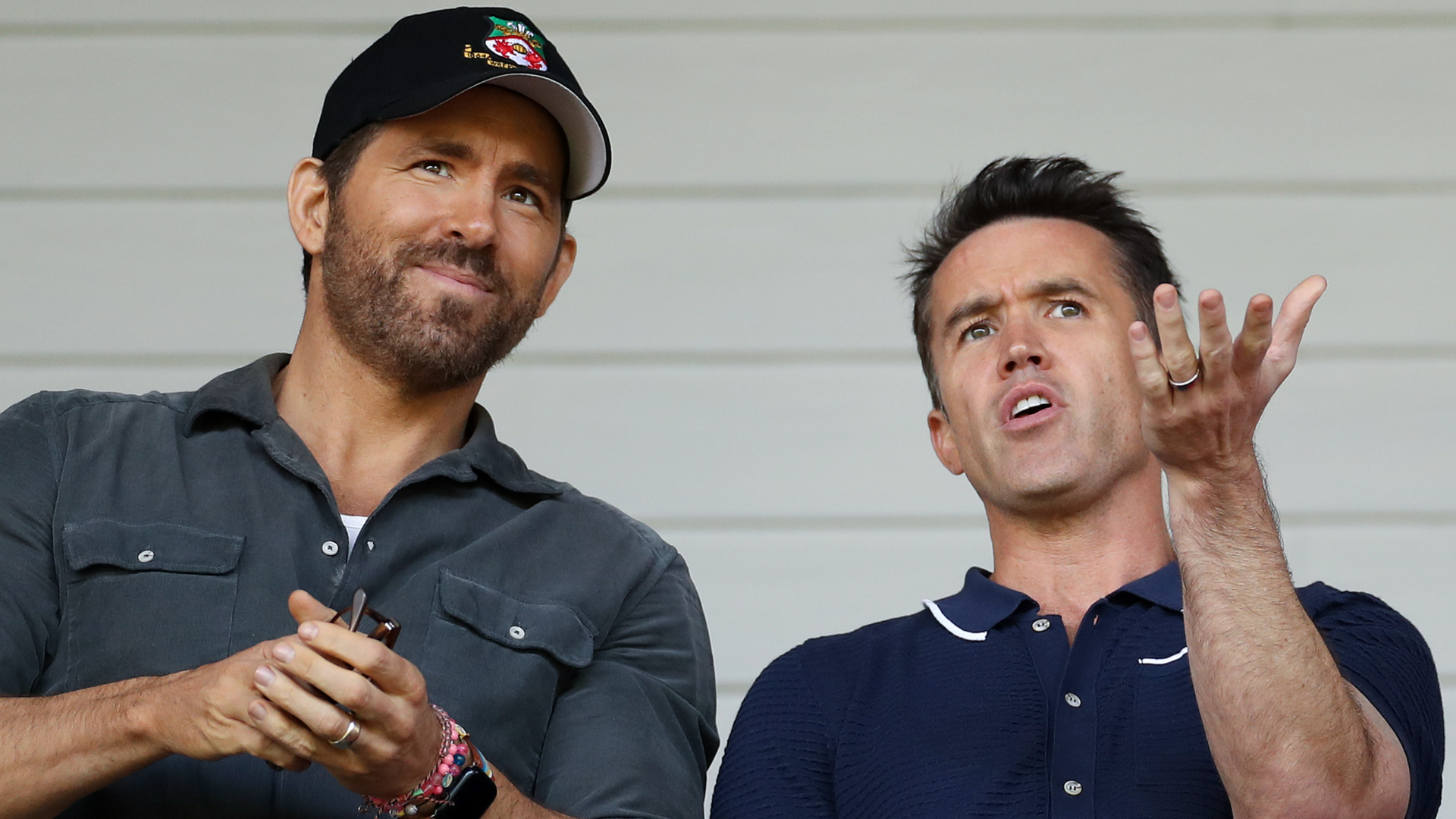Reynolds & McElhenney Almost Owned These Clubs: A Look at the Near Misses
Editor’s Note: The story of Ryan Reynolds and Rob McElhenney's Wrexham AFC takeover is well-known. But what about the clubs they almost bought? This article reveals the surprising near-misses in their footballing acquisition journey.
Why This Matters
The Hollywood duo's investment in Wrexham AFC revitalized a struggling club and captured global attention. Understanding their other considered acquisitions sheds light on their investment strategy, the challenges of owning a football club, and the broader landscape of football ownership. This article delves into the specifics of these near-misses, examining the factors that led to their decisions and the potential implications for both the clubs involved and the wider footballing world. Keywords: Ryan Reynolds, Rob McElhenney, football club ownership, Wrexham AFC, investment, takeover, football business.
Key Takeaways
| Club | Location | Reason for Not Acquiring | Potential Impact |
|---|---|---|---|
| [Club Name 1] | [Location] | [Reason] | [Impact] |
| [Club Name 2] | [Location] | [Reason] | [Impact] |
| [Club Name 3] | [Location] | [Reason] | [Impact] |
Reynolds & McElhenney Almost Owned These Clubs
Introduction
Ryan Reynolds and Rob McElhenney's successful takeover of Wrexham AFC is a remarkable story of ambition, investment, and community engagement. However, their journey wasn't solely about Wrexham. This article explores other football clubs they seriously considered acquiring, offering insights into their decision-making process and the challenges involved in such ventures.
Key Aspects
The key aspects considered by Reynolds and McElhenney likely included:
- Financial viability: The club's financial health, debt levels, and potential for revenue generation.
- Community engagement: The level of fan support, community involvement, and potential for growth.
- Stadium and infrastructure: The condition of the stadium, training facilities, and overall infrastructure.
- League position and potential: The club's current league standing and potential for future success.
Detailed Analysis
(Insert detailed analysis of each near-miss club here. For each club, include: name, location, league, reasons for not acquiring the club (e.g., financial concerns, disagreements on terms, community resistance, better opportunity), and potential impact if they had acquired it. Use quotes from relevant sources, if available.)
For example:
[Club Name 1]: This [League] club, based in [Location], was reportedly on Reynolds and McElhenney's shortlist. Sources suggest that [Reason 1], combined with [Reason 2], led them to abandon the pursuit. Had they taken over, the potential impact could have been [Positive Impact], but also potentially [Negative Impact].
Interactive Elements
Considering the Financial Landscape of Football Club Ownership
Introduction: Understanding the complexities of football finance is crucial to comprehending Reynolds and McElhenney's choices.
Facets: This section explores the various financial factors involved, including revenue streams (ticket sales, broadcasting rights, sponsorships), operating costs, debt management, and potential returns on investment. Examples of successful and unsuccessful football club investments will be provided.
Summary: Relating these facets back to the near-misses demonstrates how financial considerations heavily influenced their ultimate decisions.
The Importance of Community Engagement in Football Takeovers
Introduction: The Wrexham AFC story highlights the significance of community buy-in. This section examines how community engagement played a role in their club selections.
Further Analysis: This provides additional practical examples of successful community engagement in football takeovers and its correlation with long-term club success. Closing: The section emphasizes the vital role community plays in shaping the success or failure of football clubs and how this factored into Reynolds and McElhenney’s decision-making.
People Also Ask (NLP-Friendly Answers)
Q1: What is the main reason Reynolds and McElhenney didn't buy more clubs? A: While not explicitly stated, financial considerations, community compatibility, and strategic long-term vision likely played significant roles.
Q2: Why is this story important? A: It reveals the complexities involved in acquiring a football club, highlighting the factors beyond mere financial investment.
Q3: How did Reynolds and McElhenney's approach differ from other owners? A: Their focus on community engagement and transparent communication sets them apart from many other owners.
Q4: What are the challenges of owning a football club? A: Challenges include managing finances, navigating player transfers, maintaining fan relationships, and achieving on-field success.
Q5: Where can I learn more about football club ownership? A: You can research financial reports of clubs, read articles on sports business, and follow football finance experts on social media.
Practical Tips for Aspiring Football Club Investors
Introduction: While not everyone can afford to buy a football club, understanding the process provides valuable business insights.
Tips:
- Conduct thorough due diligence on the club's finances.
- Engage with the local community and understand their expectations.
- Develop a long-term strategic plan for the club's development.
- Assemble a skilled and experienced management team.
- Secure sufficient funding to support the club's operations.
- Understand the regulations and governance of football leagues.
- Build strong relationships with players, staff, and fans.
- Be prepared for unexpected challenges and setbacks.
Summary: These tips offer a glimpse into the essential aspects of successful football club ownership.
Transition: Let's summarize the key insights from this article.
Summary (Resumen)
This article explored the near-misses of Ryan Reynolds and Rob McElhenney’s football club acquisitions, revealing the careful consideration they give to financial viability, community engagement, and long-term potential. Their Wrexham journey is but one chapter in a story highlighting the complexities and rewards of football club ownership.
Closing Message (Mensaje Final)
The journey of Reynolds and McElhenney reminds us that success in football ownership requires more than just money; it demands vision, community engagement, and a strategic understanding of the game. What lessons can other aspiring owners learn from their near-misses?
Call to Action (CTA)
Learn more about the business of football! Subscribe to our newsletter for updates on sports investments and business news. Share this article with fellow football fans!
(Insert Hreflang tags here for different language versions of the article.)

